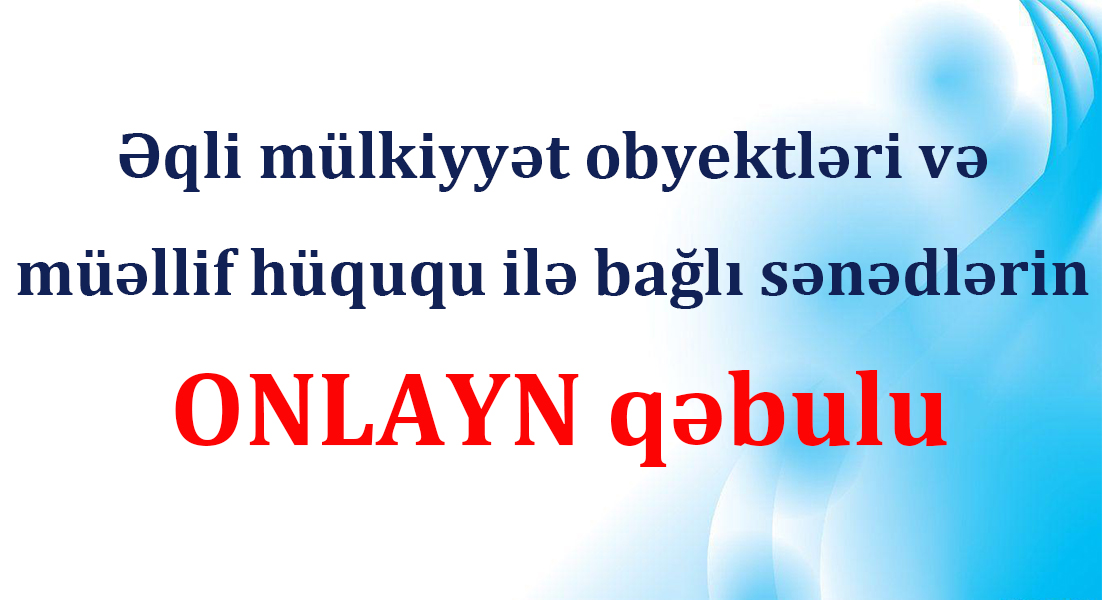Comment of the Intellectual Property Agency about the next Armenian plagiarism of the song “Chirpinirdi Gara daniz” (“The Black Sea was raging”) which’s lyrics belong to Ahmad Javad and music to Uzeyir Hajibayli

The song “Chirpinirdi Gara daniz” which’s music belongs to the outstanding Azerbaijani composer Uzeyir Hajibayli and the lyrics belong to Ahmad Javad has been performed by Russian singer Avraam Russo and this song has got the name “The song of 2018”. This plagiarized song performed by Avraam Russo is presented at “Youtube”as a song “Kamancha” which’s lyrics belong to Armenian ashug Sayat Nova.
In 2014 the information about belonging of the song “Chirpinirdi Gara daniz” to Armenian poet Sayat Nova, whose great majority of works are in Azerbaijan language, is disseminated at “Sabah” newspaper of Turkey. Immediately, the reference prepared on the basis of legal and archive materials which prove that the music of the song belongs to Uzeyir Hajibayli, the lyrics to Ahmad Javad was sent by the Copyright Agency through fax with copies of confirming materials, later was sent by official letter with additional materials to the Embassy of Azerbaijan to Turkey in May of 2014. In addition, comments on this matter have been placed at the website of the Agency and have been disseminated at Mass Media.
We inform you that the poem “Chirpinirdi Gara daniz” was written by Ahmad Javad in Ganja in 1914. Uzeyir Hajibayli composed music to this poem in 1918 and the song has been performed at many events. Being famous in Turkey, this song has not been sounded for a long time after 1920 in Azerbaijan for the reason that the authors may be accused in Pan Turkism.
After restoring state independence of Azerbaijan, this song was sounded for the public at Ahmad Javad’s 100th Anniversary on March 10, 1993 in the Republic Palace in Baku.
In addition, it has been indicated in publications of many publishing houses, including “Azerbaijan” publishing house, in magazine “The world of music”, also in electronic encyclopedias that the music of this song just belongs to U.Hajibayli.
According to the People’s Artist Faig Sujadinov’s comment, who is the music expert of the Intellectual Property Agency, “the song “Kamancha” performed by Avraam Russo is completely similar to U.Hajibayli’s “Chirpinirdi Gara daniz” song which he has composed on Ahmad Javad’s lyrics. Being the next sacrifice of Armenian plagiarism, this song has been written in Shur classification of Mugham. It is not accidental that Said Rustamov’s “Gelmedin” and Emin Sabitoglu’s “Daglar” songs have been written in Shur classification and have been derived advantage from U.Hajibayli’s music. So, above mentioned song is similar to the popular Azerbaijani song “Chirpinirdi Gara daniz” which is written in Shur classification of Mugham.
It is known that instead of indicating the author’s name, drawing performer’s name to the fore is already used instrument of Armenian plagiarism (See: Kamran Imanov, Tall Armenian Tales, 2008).
As for the authorship of Sayat Nova, about 70% of his poems and songs werecreated and spread in Turkic-Azerbaijan language.Founder of modern Armenian literature Khachatur Abovyan confessed that "Armenians are singing only in Turkic", "Armenians have no epics with song". Famous Armenian literature specialist S. Palasanyan added that "...if we (the Armenians) are under the influence of the other nation, we consider their songs ours”. (S. Palasanyan "Armenian Songs", S.Peterburq, 1868, in Armenian language). Other Armenian art-specialist M. Nalbandyan, who confirms the Armenians’ appreciating, emphasized that "… most of the music and songs were taken from Turks. I have been in many places where Armenians live. I have never heard anything exact in Armenian language... " (N. Nalbandyan, "About ancient poems and songs", collection of selected works, Vol.1).
The research on Sayat Nova's activity also shows that there is no poem called "Chirpinirdi Gara daniz " in the list of his works.
Except this, there is not Sayat Nova’s poem in this name and content in the book "Sayat Nova. The poems." published in Leningrad section of the “Sovetskiy pisatel” publishing house in 1982. Sayat Nova's "Kamancha" poem was translated into Russian by Valery Bryusov.
It should be noted about kamancha that Armenians have repeatedly acknowledged that tar and kamancha belong to Azerbaijanis. Trdat Balean, clergyman, folklore collector and publisher: "Names of ashug instruments are in Turkic - saz, santur, kaman or kamancha, baglama".(Armenian ashugs, Collector Trdat Balean. I Tom, Mamuryan Publishing House, 1911, p. 9, in Armenian language).
Trdat Balean: "Even the names of poems are in Turkic: goshma, dastan, galandar, mustazad-galandar, mukhammas-galandar, divani, gazal, rubai-divani, musaddas-divani, semai, musaddas-semai, nakhishkar-semai, edekli-semai, dubeyti, muxemmes, tacnis, zancirlama, dildeymez, aliphlama, satranch, gita, gasida, nagarat etc. (Armenian ashugs. Collector Tridat Balean. I Tom, Mamuryan Publishing House, 1911, p. 9, in Armenian language).
Newspaper "Mshag” published in Tbilisi in Armenian language, dated September 3, 1916, wrote that "their ears have been filled with tar and kamancha sounds. That's why eastern music has fallen into the soul and blood of the Armenian people " (K. Imanov, interview with Interfax-Azerbaijan News Agency, November 15, 2011).
The Azerbaijani culture and its pearls are known all over the world as a result of the First Vice-President of Azerbaijan Mrs. Mehriban Aliyeva’s indefatigable activity. At the international level, it has been admitted that the "kamancha" musical instrument belongs to the Azerbaijani people. Jointly presented by Azerbaijan and Iran “Art of crafting and playing with Kamancha, a bowed string musical instrument” was included in UNESCO Representative List of the Intangible Cultural Heritage of Humanity during the twelfth session of the Intergovernmental Committee for the Safeguarding of the Intangible Cultural Heritage in the Republic of Korea, at the end of 2017.
In addition, dozens of scientific articles and researches about Kamancha have been published, translated into foreign languages and accordingly sent by the Agency. Thus, Kamancha is considered one of the ancient musical instruments which spread with different names among the nations of the East and Central Asia, and it has several types. Kamancha is derivative of bowed gopuz (M.Karimov, "Azerbaijan musical instruments", the Second edition, 2010, p.136). In common Turkish languages it means "small kaman". Opinions on deriving its name from the words "Gam" and "An" / "Un" (high sacred voice) in old-Turkic, on sounding for the purpose of communication of Gam-Mags with Tengri (God) have been confirmed.
Due to the term of copyright protection of the authors of “Chirpinirdi Gara daniz” song is over, this music and poem are considered public domain, and taking into consideration their great importance, the song transferred to the state domain from public domain and is currently protected by the state. It should also be noted that the protection of moral (non-property) rights of the authors is termless. Changing the words of the song “Chirpinirdi Gara daniz” is a violation of the moral (non-property) rights of the authors of the original work and it is considered the infringement of the law.
Therefore, any changing, appropriating or filing on behalf of another person of such work becomes plagiarism as copyright infringement.
So, the attempts of armenization U.Hajibayli’s song “Chirpinirdi Kara daniz” and identification it with the poem of Sayat Nova "Kamancha" will always be stopped by us in accordance with international legislation.
30.01.2019





















